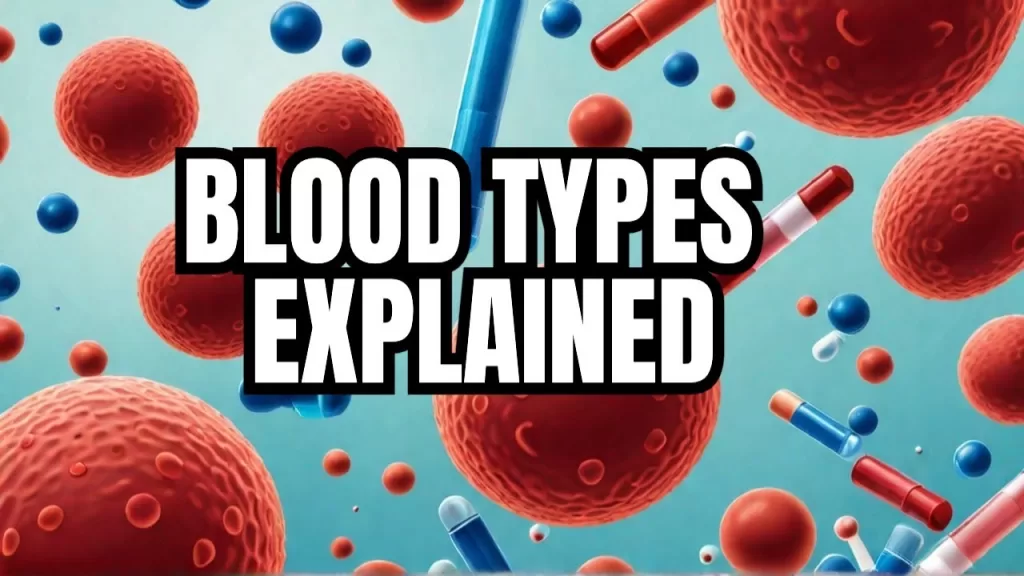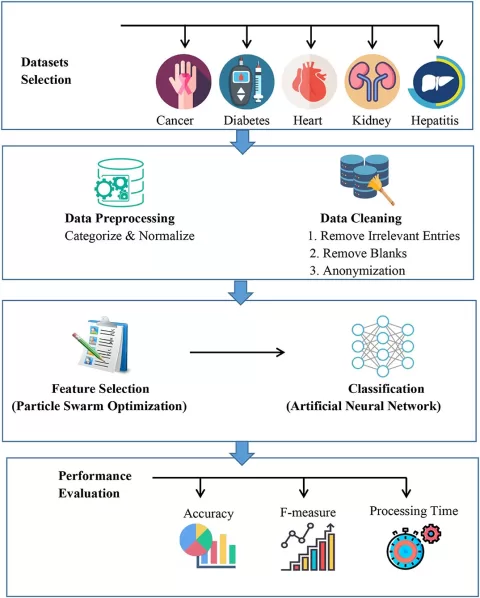Understanding blood groups is crucial for anyone interested in their health and medical care. Blood type characteristics vary significantly among individuals, influencing everything from compatibility in transfusions to potential health risks. Recent research on blood types has unveiled fascinating insights into how these groups can affect our well-being, including the interplay between diet and blood types. Moreover, knowing your blood group can aid in making informed decisions about nutrition and lifestyle, enhancing overall health. In this article, we will delve into the complexities of blood groups, exploring their compatibility and the latest findings in this dynamic field.
The classification of blood types is fundamental to our understanding of human biology and healthcare. These classifications, often referred to as blood types or blood groups, encompass the ABO system and the Rh factor, which together dictate compatibility for transfusions and organ donations. Moreover, recent studies illustrate how blood type and health are interconnected, potentially influencing dietary choices and susceptibility to certain medical conditions. By examining these relationships, we can appreciate the importance of blood group compatibility and its implications for individual health management. This exploration will provide a comprehensive look at how our blood types shape our health and wellness.
Understanding Blood Groups: Characteristics and Compatibility
Blood groups are categorized into classifications based on the ABO system, which was pioneered by Karl Landsteiner in the early 20th century. The four primary blood types—A, B, AB, and O—each have unique characteristics that affect their compatibility with one another. For example, individuals with Type O blood are universally recognized as donors, able to give blood to any other type. Conversely, those with AB blood can receive from any type, illustrating the significance of understanding blood group compatibility in medical emergencies.
The unique antigens and antibodies present on red blood cells further define blood group characteristics. Type A individuals have A antigens and produce anti-B antibodies, while Type B individuals have B antigens with anti-A antibodies. Type AB has both, lacking any antibodies, and Type O has neither, with both anti-A and anti-B antibodies. This intricate web of interactions is crucial to avoid adverse reactions during blood transfusions, showcasing the importance of understanding blood groups.
The Role of Blood Group Compatibility in Transfusions
Blood group compatibility is fundamental in the realm of transfusion medicine. A mismatch during a blood transfusion can lead to severe immune reactions, which can be life-threatening. The compatibility chart clearly outlines which blood types can safely donate to others, emphasizing the importance of conducting thorough blood type testing prior to any transfusion. Type O negative blood, known as the universal donor, can be given to any patient, which is especially critical in emergency situations where immediate transfusion is necessary.
In addition to transfusions, understanding blood group compatibility extends to organ transplants. Organs must be matched not only based on blood type but also on tissue compatibility to minimize rejection risks. This requires a nuanced understanding of both the ABO blood system and the Rh factor, as well as the potential for other antigen mismatches. Hence, healthcare providers must be well-versed in these compatibility rules to ensure the safety and efficacy of both transfusion and transplant procedures.
Diet and Blood Types: Are They Interconnected?
The relationship between diet and blood types has gained popularity through the concept of the Blood Type Diet. Proponents of this diet suggest that certain food choices can enhance health based on an individual’s blood type. For instance, those with blood type O may benefit from a high-protein diet, while individuals with type A are encouraged to adopt a vegetarian lifestyle. Although these dietary recommendations are intriguing, they remain controversial and should not overshadow the importance of balanced nutrition.
Recent studies indicate that while diet can be influenced by blood type, other factors such as individual metabolism, lifestyle choices, and overall health are equally significant. It is essential for individuals to consult with healthcare professionals before making drastic dietary changes based solely on blood type. Emphasizing a holistic approach to nutrition, considering all aspects of health, will ultimately lead to better health outcomes.
Recent Research on Blood Types and Health Implications
Emerging research has begun to uncover intriguing links between blood types and various health conditions. For instance, studies suggest that individuals with blood types O and B may experience slower aging compared to those with A and AB. This connection could pave the way for personalized health strategies that take blood type into account, potentially leading to more tailored medical treatments in the future.
Additionally, recent findings have highlighted a correlation between blood types and the risk of heart disease, indicating that blood type may play a role alongside traditional risk factors such as diet and lifestyle. These studies underscore the importance of ongoing research into blood type characteristics, as they may offer new insights into preventive healthcare strategies and improve our understanding of how blood types affect overall health.
Understanding Blood Group Compatibility in Organ Donation
The significance of blood group compatibility extends beyond transfusions; it is also a critical factor in organ donation. When a donor organ is transplanted, it must be compatible not only in terms of blood type but also in tissue antigens. This compatibility is vital to reduce the risk of organ rejection by the recipient’s immune system. For example, an organ from an AB+ donor is compatible with AB+, AB-, A+, A-, B+, and B- recipients, showcasing the intricate balance required in organ matching.
Moreover, the compatibility of blood types can influence the success rates of transplants. Understanding the nuances of blood types, including the rare Bombay blood group, is essential for healthcare providers to ensure that patients receive the best possible care. This knowledge empowers medical professionals to make informed decisions during the organ matching process, ultimately improving patient outcomes and survival rates in transplant scenarios.
Frequently Asked Questions
What are the main blood type characteristics that everyone should know?
Understanding blood type characteristics is fundamental to recognizing how blood groups are classified. The ABO system categorizes blood into four main types: A, B, AB, and O, with each type further classified as positive or negative based on the Rh factor. Each blood type has specific antigens and antibodies that play a crucial role in blood transfusions and organ transplants.
How does blood group compatibility affect blood transfusions?
Blood group compatibility is vital in blood transfusions to prevent adverse reactions. Certain blood types can only receive compatible blood types, as illustrated by the universal donor (O-) and universal recipient (AB+). Knowing the compatibility rules helps ensure safe transfusions and organ donations.
What is the relationship between diet and blood types according to recent research?
Recent research has explored the ‘Blood Type Diet’, which advocates dietary choices based on individual blood types. For example, blood type O individuals may benefit from a protein-rich diet, while type A individuals may thrive on vegetarian options. However, this diet’s efficacy is debated and should complement a balanced nutritional approach.
What recent findings have emerged regarding blood types and health?
Recent studies indicate that blood types may influence various health aspects. For instance, research suggests that people with blood types O and B might experience slower aging, while blood type can also impact heart health risks. These findings underscore the importance of understanding blood groups in personal health management.
Why is it important to understand blood type characteristics and compatibility?
Understanding blood type characteristics and compatibility is crucial for safe medical practices, including blood transfusions and organ transplants. It helps prevent life-threatening reactions during transfusions and facilitates better health decisions based on an individual’s blood type, reinforcing the link between blood groups and overall health.
| Donor Blood Type | Recipient Blood Type |
|---|---|
| O- | All |
| O+ | O+, A+, B+, AB+ |
| A- | A-, A+, AB-, AB+ |
| A+ | A+, AB+ |
| B- | B-, B+, AB-, AB+ |
| B+ | B+, AB+ |
| AB- | AB-, AB+ |
| AB+ | AB+ |
Summary
Understanding blood groups is essential for various reasons, from ensuring safe blood transfusions to uncovering potential health implications based on our biological characteristics. As research continues to explore the connections between blood types and overall health, individuals are encouraged to stay informed and consult healthcare professionals regarding their specific blood type needs. Embracing knowledge about blood groups can empower us to make better health decisions and promote a healthier lifestyle. By keeping abreast of the latest findings, we position ourselves to utilize this knowledge to our advantage in both medical and dietary contexts.
The content provided on this blog (e.g., symptom descriptions, health tips, or general advice) is for informational purposes only and is not a substitute for professional medical advice, diagnosis, or treatment. Always seek the guidance of your physician or other qualified healthcare provider with any questions you may have regarding a medical condition. Never disregard professional medical advice or delay seeking it because of something you have read on this website. If you believe you may have a medical emergency, call your doctor or emergency services immediately. Reliance on any information provided by this blog is solely at your own risk.






